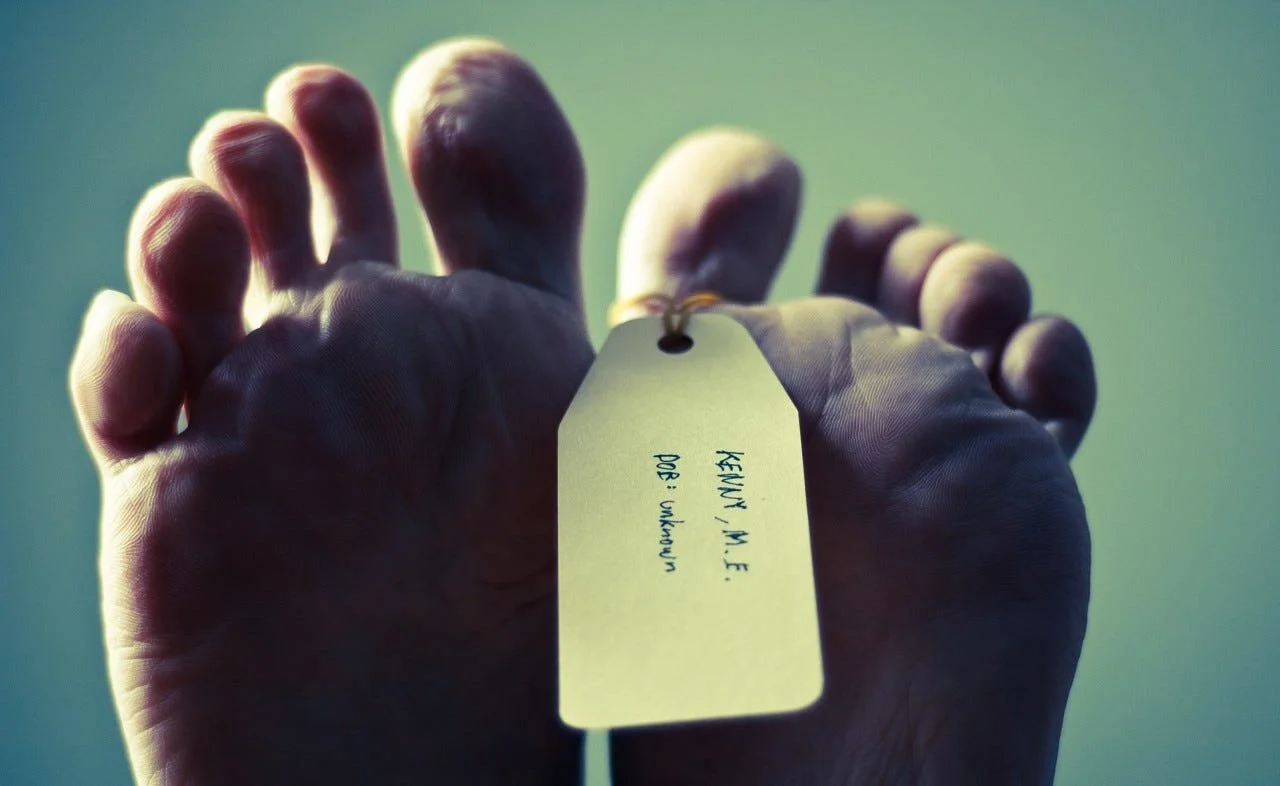How Men Thrive
If you are a man—think about the following question for a minute, it’s important and could change your life forever.
Have you been called “needy”, or are you the self-reliant, all-providing hero you are supposed to be? The truth is that neither of these two characteristics suits the natural dignity that belongs to men. More often than not, we drink the “liquid hero” and end up wanting to kick ourselves in the teeth for giving too much, too soon, and frequently to the wrong people in relationships, the workplace, and in our communities. Add a healthy dose of media stereotypes about who we are supposed to be, and it becomes pretty clear that men need to begin to define themselves and their relationships a little more accurately.
I asked myself these very questions when a friend sent me a copy of the recently re-released 1938 Harvard University on Happiness and Men this week. George Vaillant, who directed the study for more than three decades, published the study’s findings in the 2012 book Triumphs of Experience (Amazon). Vaillant followed 268 male undergraduate students in the longest-running longitudinal study of human development in history. The study’s goal was to determine, to the best of its ability, the factors that contribute most strongly to what makes humans flourish in general and men in particular. Vaillant presents a dizzying array of psychological, anthropological, and physical traits ranging from personality type to IQ to drinking habits to family relationships to the bizarre, such as the “hanging length of his scrotum.” It’s a fascinating, incredible book.
The one piece of data Valiant refers to most is the powerful correlation between the warmth of our relationships and our health and happiness in our later years. Vaillant asserted time and time again that his focus on warm relationships was warranted and placed even more importance on this than any other factor.
Let me make this personal and real for the reader. Some time ago, I found myself sitting under a large oak tree in my neighborhood talking with a person whom I would never see again after the conversation. I was set to marry the woman I met in the park that day. We had met two years before while I had been traveling in Europe. We fell in love in spite of the fact that our worlds could not have been more different. At the time, I was raising money for my second start-up and traveling from the West Coast to D.C. and back in a blur of meetings and pitches. She had been covering most of the Eastern European bloc for the Economist and traveled to the New York and London bureau offices regularly. She was a hard-scrabbled writer who had made her way in a man’s world for a reason, but she had grown tired of the rigamarole and wanted to move to the U.S. and have a baby. She was also notoriously cold-blooded about decisions and unforgiving when she didn’t get what she wanted, while I tend to be more diplomatic, emotional, vulnerable and blunt. We knew we would have to make sacrifices. She couldn’t work in the US, she would have to give up her journalism career, and I would have to give up the start-up life and get back in the game of corporate strategy to support us 100% financially. Suffice it to say, this was not a light undertaking for either one of us. That’s what brought us to that park that day.
We talked, cried and cursed our way through the details of how our careers and our lives were bound to change. In the end, the challenges turned out to be too much for two very independent people. Thankfully, we had enough mutual respect and decency to do the uncomfortable work that the relationship required of us. In that instant, it meant getting through a very unpleasant conversation about not being together. (Piece of advice, never ever break up with anyone over email if you ever want to speak to them again). She left within days, and I moved on certainly — but not without a great deal of consternation and pain. We had been very good friends and colleagues for two years. We spoke almost every day, and then — just like that — she was gone. I’d lost the love of my life, my friend and my confidante. We speak today, but very briefly and cordially—which is a credit to us both.
Living With Unrealistic Archetypes
First, it’s important to not that we were both trying to live up to archetypal roles that are not realistic no matter what anyone tells you. She was trying to be a modern, award-winning journalist and future child-rearing, french-cuisine-cooking goddess, while I was trying to do everything I could-including changing my career and putting aside my own goals to support her during the time she was in the U.S. For the life of me, I couldn’t imagine doing anything else—but she wasn’t willing to budge on the details. She needed 100% support in every way imaginable. My work suffered for it. The A-round I was pursuing earlier in spring never came in. To this day I wonder if I hadn’t been distracted by what was, in retrospect, a deep unspoken need to save someone, to be a hero, and to be — for better or worse — a real man. A grown man. I was also clearly ignoring my own needs. In the end, our decision to separate was abrupt, unexpected and a huge loss. Neither of us had been able to fight past the net of expectation and rest in what should have been mutual appreciation. Neither of us were willing to be realistic. Ultimately, we were stuck in our roles, and ended up empty-handed. This is a shame-because regardless of the ugliness I believe most people are well-intentioned in relationship.
Not long after this, I went on sabbatical and began writing a book about ethics entitled, An Emergent Ethos, which I am publishing in a few weeks. What this experience made me realize, and what I have found echoed by other professional men, is that often men ignore their own intuition and needs to satisfy the full emotional, financial and psychological needs of their partner without question because it is what is expected of them. We do this more frequently than we think-and often, we do it unconsciously. We give up on ourselves willingly and stoically, and often without much thought of likelihood of getting our real needs or even discussing them. Men respond to expectation too readily, for obvious and often regrettable reasons. We believe the macho PR a little too easily—without making a deliberate effort to find out what a person’s values are. Another piece of advice—just ask. Ask a new company or potential love interest what their values are before you dive in. You’ll be surprised at the answers you get—and more importantly see if their actions actually back it up. Being a man is a funny misnomer for our traditional role as providers and protectors. Depending on our upbringing, we are to be aware of the “right thing to do.” Doing it is another matter. I think that being a good father and husband is the right thing to do, and yet I hear more and more men complain that they are not sure what the trade-off is. Like it or not, many men—good men, willingly sacrifice everything for families, wives, houses, and end up bankrupt emotionally and otherwise. This is not because of opportunistic women friends. We need to starting owning that the valiant, heroic impulse in us has in it the seeds of emotional irresponsibility, dispossession and neglect for one’s own needs. I am also not so sure we talk about this, at all. I’m not sure we even think about it, and we should.
How Do Men Thrive?
Given even a cursory glance at the identity chasm between what is male chauvinismand what is well-adjusted masculinity, it’s not surprising that the latter categories struggle to find ways to keep the image alive. Can you really blame the advertisers, sports fanatics, and gun-toting militias for struggling to save some semblance of an albeit misguided sense of masculinity? I am not talking about the generation my father belongs to. I am talking about boys being brought up today, and about the young men entering the workforce. I am talking about younger colleagues who, for some reason, feel they need to make themselves literally more effeminate to make their point without offending. I am talking about men that deceive themselves about their own emotional needs and bandwidth. These two disparate characteristics are proof positive that men are often confused about what role to play in their relationships and at work.
I mentioned in an earlier piece this year that the disconnect between economic life and existential life, (defined as a life motivated by a search for meaning), has been raised and answered in a radical way by everyone from theologians like Trappist monk Thomas Merton to civil rights leaders like Mahatma Ghandi, from authors like Tolstoy to physicians like Albert Schweitzer. Their answers vary, but invariably the tendency is to see love and a “normal” contemporary life as being incompatible. On the other hand, popular new age authors like Deepak Chopra, (and the thousands of life coaches everywhere that email you daily), would have us believe that one can have everything: a loving marriage, a 4,000 square foot mansion with a red Ferrari in the driveway, a private jet and vacations in the Caribbean.
Men do not thrive because of toys, having a girl half their age on their arm, or because they make a lot of money. Men thrive when their needs are validated in the same way their partner’s are. Not less than, or more than—but equally. Men thrive when they show discretion about their bandwidth and consider to whom and what we lend our attention, strength, and energy, and most of all when we have supportive, loving partners that we can rely on.
Making Men Better And Stronger
There is not much room in the traditional role of stoic caretaker for men’s actual emotional needs, and this is exactly what needs to be reevaluated. There has been much said about the obligation men have to love and support families. There are well-intentioned movements that encourage men to live up to these standards-and we should certainly honor our commitments. However, it is oft ignored that men actually have emotional needs that are equal to those of women. Men who have not healed from childhood scarring take that legacy into their marriages and families, while men who have a developed sense of emotional intelligence are better leaders, fathers and friends. We need to encourage one another to open up, and let it go.
Does culture have room for men that are vulnerable or emotional, for men with deep emotional scars and healing? If we don’t—we better make room—because these are the very qualities that make men better and stronger.
Towards Mutuality
Men need only to be directed towards a middle ground; towards reciprocity, compromise, mutuality, and cooperation. Again, this is not easy. More than once I have, like many men, attached myself to someone whom I thought would be responsive to my needs but whose own needs very quickly became paramount to my own. Instead of seeking out a true partner—I sought out people with whom I played out an outdated role and ended up resenting myself and them.
This is on we men—not on the women we perpetuate this myth with. To put it bluntly—men have got to begin take responsibility and discern between what is a true relationship instead of playing out the outdated myths about who we should be in our heads.
What the Harvard Study cleary tells us is that men thrive when they are engaged with affection and warmth. Not unexpectedly this starts with our relationships to our mothers and extends to our partners. It is almost impossible to ignore this relationship, and moreover, even more difficult to accept the massive effect it has on our lives. In reality, men need to stop engaging from a place of what we think we should or could be, and engage instead from a place of vulnerability. It’s not easy for men to do, and we should be careful to whom we entrust that sacred space. We shouldn’t be surprised when we find another person who, like ourselves, is falling short of this idealism and cannot accommodate our needs. We ought to be more discerning about who is on the receiving end of that idealism. Are the roles we feel compelled to play also setting us up for success or disaster because our expectations don’t match that person’s actual emotional capacity?
Reciprocity and warmth in relationships are not only necessary for what all of us need to thrive—men and women—they comprise true, real common humanity and the beginning of mutuality. We should celebrate when we find a mutual transparency that allows for our fragility and our frailty. We should be thankful when we find someone who is capable of actually listening and validating our deep, very natural need for affection and warmth. Indeed, we ought to seek out those with whom we can cultivate the natural dignity in ourselves as men—because that is what we really need most.



